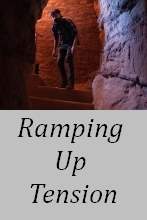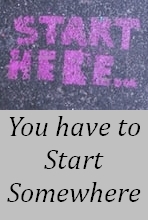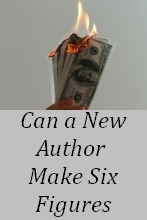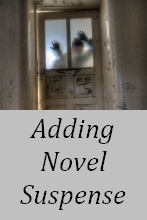Twelve Steps to Motivate Yourself to Write
By: Ken Brown
Published: 4/14/2021
What can you do when you don't feel like writing?
I received an email the other day from a friend that isn't feeling any motivation to sit down and do the hard task of writing.
With the pandemic she isn't motivated to write. Days blend into sameness when you can't go anywhere and nothing new is happening. She says she isn't involved in Social Media. She's written short stories and submitted them to publishers and is getting rejected. She stopped coming to our writer's group even though we continued to meet online on discourse. She was involved in other writing groups and I don't know if she continued those or not.
Here's a list of actions I take when I'm feeling sluggish about writing.
- Go for a walk.
- Read a book on How to Write.
- Listen to a Podcast on Writing
- Join a Facebook Writer's Group
- Attend a Local Writer's Group
- Writing Prompts
- Go Someplace and People Watch
- Watch a Mystery, Romance or Genre Related TV Show
- Read Poetry
- Outline a Story
- Write a Short Story Without
- Attend a Theater Performance
Exercise is good for waking up your mind and clearing out cobwebs. A long walk in the sun on a spring day will do wonders for motivation to do tasks.
2. Read a book on How to Write. Why?
Sometimes when I read a how-to book on writing, it motivates me to try out some of the techniques suggested in the book. The next thing I realize is I'm writing something, even if it is a practice.
What do I read?
On my kindle I have books by a number of authors, many who use to write for Writer's Digest.
- James Scott Bell - James Scott Bell
- KM Weiland - Helping Writers become Authors
- Randy Ingermanson - Advanced Fiction Writing
- Sacha Black - She has terrific books on writing, though her swearing turns me off.
- Donald Maass - Books on Writing
- Joanna Penn - The Creative Penn
I feel like James Scott Bell inspires me to write. When I pick up one of his books and start reading a few chapters, I'm inspired to write. Joanna Penn can be very motivational too. 3. Listen to a Podcast on Writing
Here are my favorites
- Writing Excuses - A podcast by well known authors. Short and to the point, less than 30 minutes each packed full of information.
- The Creative Penn - More about being a well rounded self-publisher, she talks with leading writers in many genres
- Six Figure Authors - This runs the gamut from marketing, writing to business strategy
- Helping Writers to Become Authors - This is all about the craft of writing.
- Sacha Black - Teaches craft - Beware foul language
Here are several I'm involved with
- Wide for the Win - Talks more about marketing than writing, but helpful conversations.
- Rebel Authors - Sacha Black
- Zombie Pirate Publishing - Once a quarter they will ask for short story manuscripts. The guys from Australia that run it are the best social media people I've ever encountered.
- Prose Procrastination Anonymous - Twice a week they host writing time (Other people encourage you to write.)
- Adventure Writers Summit
- Ingram Sparks Publishers - This group is not sponsored by the company Ingram Sparks.
- ProWriting Aid Writer's Community
- Six Figure Authors has a facebook group - I'm not a member.
- There are others - search for your favorites
- Inspiration - Feedback on your writing and encouragement to continue.
- Comaraderie - You find out you aren't alone in the wilderness trying to write.
- Sometimes the members will inspire you to work harder. Even if it's, "if that loser can write a book then I can."
- Some groups will do a fifteen minute writing prompt to help you get started.
Each day take out a piece of paper and write for fifteen minutes.
There are plenty of books out there to get you started and quite a few websites to find inspiration.
Do a search on the web for "writing idea starters" or "writing prompts"
Here's a good website : The Literacy Shed
Some writers use these each day to "warm-up their writing skills."
Imagine sitting in your car or at the Mall and seeing people.
- What are they Doing?
- What could go wrong? Is there a source of conflict? A jilted lover sees them, or a husband is flirting with a sales clerk.
- Find a second person as they pass by the first person.
- Is the secon person a friend or someone with evil designs?
- Can you outline a story based on the people you see?
- What are they wearing?
- Is anything fake about them? Are they posing or expressing their inner self?
- Are they in a hurry? Why? Make something up.
My son-in-law is a talented artist. One evening we were watching and listening to my daughter, his wife, play an outdoor concert. The son-in-law has a sketch-pad in his hand and is people watching. He picks a person and then proceeds to draw a small portrait of them on the sketchpad. None of these will become a masterpiece, but it keeps him practicing.
Same with writing, pick some people and practice writing a story about them. You can do this at the mall, at Panera, in the park, at the driver's license facility, doctor's office waiting room, waiting in line, practically anywhere.
8. Watch a Mystery, Romance or Genre Related TV ShowI've done this with TV Sit Coms like Frazier and with Mysteries like Midsommer Murders I watch the show and then sit down and write an outline defining the gist of the story. Look at the way the story foreshadowed what was to follow. Sit coms are easy practice, because they're only 30 minutes and the first ten minutes is set-up for the last ten minutes. You can do this with a mystery or romance. Just the act of putting pen to paper gets your mental juices flowing and helps get you out of that writing slump. You learn to be a better writer when you can see the big picture of the story.
9. Read PoetryThere are many great poets, but I find it's easier to find music lyrics. Paul Simon, Billy Joel, Elton John, Dolly Parton and any good Country song has a story. I recommend reading the lyrics to Paul Simon's songs. He is able to paint a picture in so few words. Simon and Garfunkel wrote a song titled, America. Two people are traveling by bus and looking at the faces on the bus and making up stories about the people.
"She said the man in the gabardine suit was a spy. I said, 'Be careful his bowtie is really a camera.'"
The song Ode to Billie Joe is really a short story. But do more than enjoy the song lyrics, evaluate the paragraphs. What mental images did the writer create with just a few words? Where do these words take you in eleven words? Bobbie Gentry sets the scene for you.
"I was out choppin' cotton, and my brother was balin' hay"
You're on a farm, probably in the South, working hard during harvest season. Your back is hurting, dust is in the air, dirt and hay is sticking to your sweaty skin.
10. Outline a StoryMake this Fun - You are't really going to write this story so there's no pressure, you're just having fun.
- You don't have to write the story, just outline it. It can be simply answering five questions or make it twenty pages - your choice.
- Who are the main characters?
- Who is the antagonist?
- What does the Protagonist want?
- What is one quirk a sidekick has?
- Why does the Protagonist want that?
- What natural event will prevent your protagonist from reaching their goal?
- What is the inciting incident that forces the character to take action?
- Think of Luke Skywalker leaving his home planet when his Uncle and Aunt were murdered.
- What is your protagonist running from? There's a mistake she made in the past and she is afraid to re-live that pain.
- Where will she get the courage to take the leap from Act 2 to Act 3.
- Who delivers the bad news right after she takes that leap? All the forces were aligned to win, what changed and who changed it?
Without what? I'm glad you asked.
- Write a short story without any description. All dialogue.
- Write a short story without any dialogue. All description.
- Write a short story with only setting. Can you tell us a story about winter coming and replacing the fall?
- Can you tell us a story about a chef breaking up with their partner of seven years with only setting and the actions she takes?
- This forces you to see a story from more than the characters walking through the setting.
- This heightens your ability to improve your writing chops.
The pandemic is almost over and theaters are beginning to open again. Take advantage of smaller venues, the stories are all the same, so concentrate on the scenes. Can you see the change from Act 1 to Act 2? What was the inciting incident? What happened to spur the character to leap to Act 3? What was the conflict? Who or what caused the conflict?
Just because you submit your short stories to publishers doesn't mean they have to accept them into the book they're publishing. After you've been rejected, buy a copy of the anthology the publisher was creating and see how your story stacked up next to theirs. Zombie Pirate Publishers just closed a request for short stories and received over two hundred submissions. And I've read a few of their anthologies and these people know how to write short stories. A good short story is hard to write. Go back to step 11 above and practice putting a lot of information in a few short words. Make every sentence count.
I'll have to write another article on the questions I ask about my stories that help me get a plan/outline in place.



